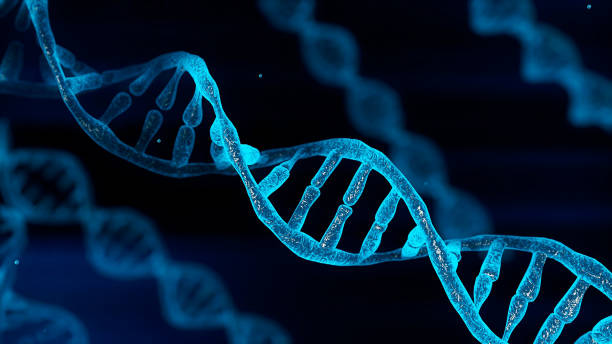Inheritance Patterns of Human Traits, Genetic Disorders, and Implications of Genetic Testing and Manipulation

The study of human genetics offers profound insights into how traits are passed from parents to offspring, the origins of genetic disorders, and how genetic technologies influence healthcare and society. With advancements in genetic testing, gene therapy, and gene manipulation techniques like CRISPR, new ethical questions have emerged. For students exploring genetics, understanding inheritance patterns, identifying genetic disorders, and analyzing the ethical implications is essential. This article provides an in-depth discussion of these topics and offers assignment help tips to streamline learning.
Understanding Inheritance Patterns of Human Traits
Human traits are inherited based on the genes passed from parents to offspring. The study of inheritance patterns involves Mendelian and non-Mendelian genetics, explaining how variations occur in populations. Some of the key inheritance patterns include:
1. Mendelian Inheritance
- Dominant Traits: Only one copy of a dominant allele is needed to express the trait.
- Example: Brown eyes, Huntington's disease.
- Recessive Traits: Two copies of a recessive allele are required for the trait to manifest.
- Example: Blue eyes, cystic fibrosis.
Monohybrid and dihybrid crosses are commonly used in assignments to predict the inheritance of one or two traits, respectively. Punnett squares allow students to visualize the likelihood of offspring inheriting certain traits.
2. Non-Mendelian Inheritance
- Incomplete Dominance: The phenotype is a blend of both parents’ traits (e.g., wavy hair from straight and curly-haired parents).
- Codominance: Both alleles are expressed equally, such as AB blood type.
- Mitochondrial Inheritance: Traits passed from the mother through mitochondrial DNA, as sperm cells do not transmit mitochondria.
Non-Mendelian inheritance patterns add complexity to genetic studies and often appear in research or assignment tasks.
Genetic Disorders: Causes, Examples, and Impact
Genetic disorders arise due to mutations in genes or chromosomal abnormalities. These disorders can be inherited or occur spontaneously due to environmental factors. Students often encounter assignments focusing on the classification of genetic disorders, their symptoms, and management strategies. Below are some common types:
1. Single-Gene Disorders
- These result from mutations in a single gene and follow Mendelian inheritance patterns.
- Examples: Sickle cell anemia, Huntington's disease, cystic fibrosis.
2. Chromosomal Disorders
- Caused by structural changes or abnormalities in chromosome numbers (e.g., missing or extra chromosomes).
- Examples: Down syndrome (trisomy 21), Turner syndrome (monosomy X).
3. Polygenic and Multifactorial Disorders
- Influenced by multiple genes and environmental factors, such as diabetes, cancer, or heart disease.
4. Mitochondrial Disorders
- Inherited through mutations in mitochondrial DNA.
- Example: Leber's hereditary optic neuropathy, which causes vision loss.
Understanding these disorders helps students link genetic mutations to real-world medical challenges and develop research-based solutions.
Ethical Implications of Genetic Testing and Manipulation
While genetic testing and manipulation have revolutionized medicine, they raise important ethical and social concerns. These issues often form the core of critical-thinking assignments. Below are some key areas to explore:
1. Genetic Testing
Genetic tests can identify inherited disorders, predict risks, and guide personalized medicine. They are valuable in diagnosing conditions like BRCA mutations (which increase the risk of breast cancer) and guiding reproductive decisions. However, they raise ethical questions:
- Privacy concerns: Who should access genetic information—employers, insurers, or governments?
- Psychological impact: Learning about genetic risks can cause anxiety and distress.
- Informed consent: Patients must fully understand the implications of genetic tests.
2. Gene Manipulation and CRISPR Technology
Gene-editing tools like CRISPR-Cas9 enable scientists to modify genes and potentially eliminate genetic disorders. However, gene editing raises several ethical concerns:
- Designer babies: Should parents be allowed to enhance their children's traits, such as intelligence or appearance?
- Equity and access: Advanced genetic technologies may only benefit wealthier populations, exacerbating health inequalities.
- Germline editing: Changes made to germline cells are passed to future generations, raising concerns about unintended consequences.
These ethical debates are critical in biology and genetics assignments, as they encourage students to analyze the intersection between science, society, and morality.
How to Approach Genetics Assignments Effectively
1. Master Key Concepts and Terminology
Genetics assignments often involve technical language. Be familiar with terms such as alleles, genotypes, phenotypes, mutations, DNA, and chromosomes. Creating a glossary or using flashcards can help.
2. Use Diagrams and Models
Visual tools such as Punnett squares, family pedigrees, and chromosome diagrams can make complex concepts easier to understand and convey.
3. Analyze Case Studies
Assignments may require students to evaluate case studies involving genetic disorders or ethical dilemmas in genetic testing. Practice analyzing these scenarios to develop critical thinking skills.
4. Stay Updated on Genetic Research
Genetics is a rapidly evolving field. Keep up with recent advances, such as CRISPR trials or breakthroughs in personalized medicine, to add depth to your assignments.
5. Get Assignment Help for Difficult Topics
If you find certain topics challenging, such as non-Mendelian inheritance patterns or ethical issues in gene editing, online assignment help services can provide expert guidance and tailored support.
How Assignment Help Can Make a Difference
Many students struggle to balance genetics assignments with other coursework. Online assignment help services can offer:
- Expert assistance: Get guidance from genetics experts who can clarify complex concepts.
- Custom solutions: Receive personalized help for case studies, research papers, and ethical analyses.
- Timely submissions: Meet tight deadlines without compromising quality.
- Plagiarism-free content: Ensure your work meets academic integrity standards.
- 24/7 availability: Get support whenever you need it, making it easier to manage time effectively.
Conclusion
The inheritance patterns of human traits, the study of genetic disorders, and the ethical implications of genetic testing are crucial topics in human genetics. Understanding these concepts equips students with the knowledge to tackle real-world problems, such as managing genetic diseases and addressing the ethical dilemmas posed by gene manipulation technologies. With expert assignment help, students can gain deeper insights into these topics, develop their research skills, and complete high-quality coursework. Genetics is a rapidly advancing field, and mastering its complexities can open doors to careers in medicine, genetics counseling, and biomedical research.
